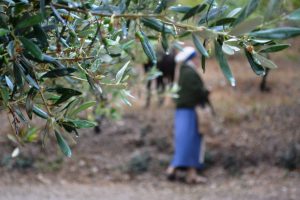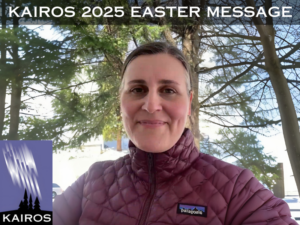Spirited Reflection: Listening to voices of young women

Advent readings: Isa 35.1-10 | Ps 146.5-10 | Mt 11.2-11 | Jms 5.7-10
Not many teenage girls make national headlines. One who has caught our attention in recent years is Malala Yousafzai, of Pakistan. Her courageous advocacy is a significant contribution to human rights work, and two years ago she received the Nobel Peace Prize for her work. We hope that our world, our nation, our communities would have more Malala’s, ready to serve as agents of change.
However, we have to acknowledge, to our national shame, that far too often, teenage girls have made headlines for tragic reasons: bullied, missing, murdered, or death self-inflicted. Even one is too many, but over the years, the names have coalesced into a long and familiar litany of pain—names like Candace Derksen, Reena Virk, Ashley Smith, Karina Wolfe, Amanda Todd, Reteah Parsons, as well as the six Indigenous girls (names not published) who, in an escalating epidemic of despair, ended their own lives last month in northern Saskatchewan.
Walking with respect in this hall of memories, beneath this sombre cloud of witnesses, I listen with a greater attentiveness to the voice of another, more distant, teenage girl. I listen to Miriam of Nazareth, whose voice sings across the centuries: My soul magnifies the Lord, and my spirit rejoices in God my Saviour. Her experience was a personal crisis, an unplanned pregnancy that resulted in her being shamed and censured by her community. But her clear voice rings with a divine resilience, as she sings a song as much a revolutionary anthem as a psalm of thanks. It is a song of the disadvantaged, looking in faith to the God who turns this dark world on its head: he has brought down the powerful from their thrones, and lifted up the lowly; he has filled the hungry with good things, and sent the rich away empty. This God is the one who sets the world to right.
Miriam’s hope was fueled by liturgical lyrics from Israel’s psalms, worshipping the Creator who keeps faith forever, who executes justice for the oppressed, who gives food to the hungry (Ps 146.6-7). It was rooted in the grand vision of Israel’s prophets, like Isaiah’s portraits of ecological and social justice: the wilderness and the dry land shall be glad, the desert shall rejoice and blossom; …then the eyes of the blind shall be opened, and the ears of the deaf unstopped; …and the ransomed of the Lord shall return, and come to Zion with singing; everlasting joy shall be upon their heads (Isa 35.1, 5, 10). And Miriam’s hope (eventually) blossomed into sight as she heard and acknowledged the reports of her eldest son, as he lived out the prophetic vision (as in Matt 11.2-11).
These Advent Scriptures call to us in these dark days of winter. We shouldn’t underestimate the symbolism of darkness as a marker of both the season of Advent and the social climate of our world: I was surprised to discover that all of the Canadian women named above died in October or November (with the one exception of Karina Wolfe, whose remains were discovered in November). As we listen to the ancient words of Miriam’s song, and the Hebrew texts that circle around it like round-dance partners, I hear three words of encouragement and challenge for those who are engaged in works of justice and mercy in days when the light is dim:
Be hopeful.
God has given us a remarkable treasury of visions of a transformed world, a world healed by the Great Reversal—a “right-side up kingdom in an upside down world.” Miriam sang with a startling confidence—God has scattered, has brought down, has lifted up. Her verbs are a theological declaration: she sang with certainty that the promised hope would be attained—so much so that “future perfect” becomes past tense.
Be patient:
according to the promise he made to our ancestors… As another of Miriam’s sons reminds us, time is a necessary ingredient in the working out of God’s purposes, through the prophets and through us. The farmer waits for the precious crop from the earth, being patient with it until it receives the early and the late rains. You also must be patient (Jms 5.7). In working for justice, the crop is truly precious, and attention to God’s timing is paramount.
Finally, be focused:
Holy is his name. The work of advocacy, activism, and justice can be anchored or nurtured in many diverse, even conflicting, ways. These texts invite us to listen to the voice of the One who keeps faith, the Maker of divine promises, the Creator who remembers those promises. These texts invite us to live with a hope firmly placed in the One who inspired Miriam/Mary with joy and confidence—invite us to follow her Son whom we name, and follow, as the Christ.
Randy Klassen is the national Restorative Justice coordinator for Mennonite Central Committee Canada. He lives in Saskatoon (Treaty 6 territory) with his wife; two cats also share the house. He has four adult children, and three grandchildren (and counting), who fuel his hopes for a more just world.












